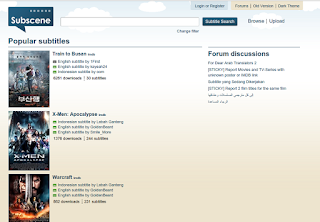Idioms are expressions that have a different meaning from the literal words they use. They are often used to make a point, add color, or create humor in speech and writing. Learning idioms can help you understand English better and communicate more naturally. Here are 32 common idioms in English and what they mean, with examples and explanations for intermediate Spanish students.
1. A piece of cake: something that is very easy to do. Example: The test was a piece of cake for me. I finished it in 10 minutes. Explanation: This idiom compares something to a delicious dessert that is easy to eat and enjoy.
2. Break a leg: a way of wishing someone good luck, especially before a performance. Example: You're going on stage soon. Break a leg! Explanation: This idiom may seem strange, but it is actually a way of avoiding saying "good luck" directly, which some people believe is bad luck. It may also come from the idea that breaking a leg means getting applause from the audience.
3. Call it a day: to stop working on something, especially after making some progress or achieving something. Example: We've finished the report, so let's call it a day and go home. Explanation: This idiom suggests that the work is done for the day and it is time to relax or do something else.
4. Cut someone some slack: to give someone more freedom or leniency, especially when they are having difficulties or making mistakes. Example: He's new to the job, so cut him some slack if he doesn't know everything yet. Explanation: This idiom comes from the idea of loosening a rope or cord that is holding someone or something tight.
5. Down to earth: someone who is practical, realistic, and easy to get along with. Example: She's very down to earth and always gives good advice. Explanation: This idiom implies that someone is not too proud, arrogant, or dreamy, but rather grounded and humble.
6. Every cloud has a silver lining: a way of saying that there is something positive or hopeful in every bad situation. Example: I know you're sad about losing your job, but every cloud has a silver lining. Maybe you'll find a better one soon. Explanation: This idiom comes from the idea of seeing the bright edge of a dark cloud as the sun shines behind it.
7. Feel under the weather: to feel sick or unwell. Example: I'm feeling under the weather today, so I'm going to stay in bed. Explanation: This idiom may come from the idea that bad weather can affect one's mood or health.
8. Get out of hand: to become uncontrollable or chaotic. Example: The party got out of hand when too many people showed up and started breaking things. Explanation: This idiom comes from the idea of losing one's grip or hold on something.
9. Hit the books: to study hard, especially for an exam or test. Example: I have a big exam tomorrow, so I need to hit the books tonight. Explanation: This idiom may come from the idea of hitting or opening books to read them.
10. In hot water: in trouble or difficulty, especially with someone in authority. Example: He's in hot water with his boss for missing the deadline. Explanation: This idiom may come from the idea of being boiled or scalded by hot water as a punishment.
11. Jump the gun: to act too soon or before the right time. Example: Don't jump the gun and buy that car without checking its history first. Explanation: This idiom comes from the idea of starting a race before the signal or gun is fired.
12. Keep an eye on something/someone: to watch something or someone carefully or attentively. Example: Can you keep an eye on my bag while I go to the bathroom? Explanation: This idiom uses the eye as a symbol of attention or vigilance.
13. Let someone off the hook: to free someone from responsibility, blame, or punishment. Example: He let me off the hook and didn't tell my parents that I broke his window. Explanation: This idiom comes from the idea of releasing a fish from a hook after catching it.
14. Make up one's mind: to decide or choose something after thinking about it for a while. Example: I can't make up my mind whether to go to college or start working right away. Explanation: This idiom suggests that one's mind is divided or confused before making a decision.
15. No pain, no gain: a way of saying that one has to work hard or suffer in order to achieve something worthwhile. Example: You have to exercise regularly if you want to lose weight. No pain, no gain! Explanation: This idiom implies that pain or effort is necessary for success or improvement.
16. On the fence: undecided or unsure about something. Example: I'm on the fence about whether to go to the party or not. Explanation: This idiom comes from the idea of sitting on a fence between two sides or options.
17. Out of the blue: unexpectedly or suddenly. Example: He called me out of the blue after not talking to me for years. Explanation: This idiom comes from the idea of something appearing from the blue sky without warning.
18. Pull someone's leg: to tease or joke with someone, especially by telling a lie or exaggeration. Example: I'm just pulling your leg. I didn't really win the lottery. Explanation: This idiom may come from the idea of tripping or making someone fall by pulling their leg.
19. Put something on ice: to delay or postpone something for later. Example: We decided to put our wedding on ice until we save enough money. Explanation: This idiom comes from the idea of preserving something by freezing it.
20. Rain on someone's parade: to spoil someone's plans or happiness. Example: Don't rain on my parade. I'm really excited about going on vacation. Explanation: This idiom comes from the idea of ruining a festive event by raining on it.
21. See eye to eye: to agree or have the same opinion as someone else. Example: We don't see eye to eye on politics, but we're still good friends. Explanation: This idiom suggests that two people look at each other in the eye when they agree or understand each other.
22. Take something with a grain of salt: to be skeptical or doubtful about something, especially a rumor or claim. Example: Take what he says with a grain of salt. He likes to exaggerate a lot. Explanation: This idiom may come from the idea of making something easier to swallow by adding salt to it.
23. The elephant in the room: a big or obvious problem or issue that no one wants to talk about or address. Example: We need to talk about the elephant in the room. How are we going to pay our debts? Explanation: This idiom uses the elephant as a metaphor for something large and noticeable that is ignored or avoided.
24. The icing on the cake: something extra that makes a good situation even better. Example: Winning the lottery was great, but getting a promotion was the icing on the cake. Explanation: This idiom compares something to a sweet and delicious topping on a cake.
25. The last straw: the final problem, annoyance, or insult that makes someone lose their patience or tolerance. Example: He was rude to me all day, but when he spilled coffee on my laptop, that was the last straw. Explanation: This idiom comes from the idea of breaking a camel's back by adding one more straw to its load.
26. The tip of the iceberg: a small or visible part of a much larger problem or issue. Example: The corruption scandal was just the tip of the iceberg. There were many more crimes that were not exposed. Explanation: This idiom comes from the idea of seeing only a small part of an iceberg above water, while most of it is hidden below.
27. Throw in the towel: to give up or admit defeat. Example: He threw in the towel and quit his job after his boss yelled at him again. Explanation: This idiom comes from the idea of throwing a towel into a boxing ring to signal surrender.
28. To be in someone's shoes: to be in someone else's situation or position, especially a difficult one. Example: I wouldn't want to be in your shoes right now. You have a lot of work to do. Explanation: This idiom uses shoes as a symbol of someone's life or circumstances.
29. Turn over a new leaf: to change one's behavior or attitude for the better. Example: He decided to turn over a new leaf and stop drinking after his accident. Explanation: This idiom comes from the idea of turning a page in a book to start a new chapter.
30. Under someone's thumb: under someone's control or influence, especially in a negative way. Example: She's under his thumb and does whatever he tells her to do. Explanation: This idiom suggests that someone is pressed down or oppressed by someone else's thumb.
31. Up in the air: uncertain or undecided; not yet settled or resolved. Example: Our plans for the weekend are still up in the air. We haven't decided where to go yet. Explanation: This idiom comes from the idea of something being floating or flying in the air without direction or destination.
32. Walk on eggshells: to be very careful or cautious about what one says or does, especially around someone who is easily offended or angry. Example: I have to walk on eggshells around my boss. He gets mad at me for every little mistake.
Some reasons for learning idioms
From an English student’s perspective, idioms are a vital part of language learning for several reasons:Understanding Culture: Idioms often reflect cultural nuances and historical contexts that are unique to native speakers. By learning idioms, students can gain insights into the culture and mindset of English-speaking societies.
Enhancing Communication Skills: Idioms are frequently used in everyday conversations, literature, movies, and TV shows. Knowing idioms can help students understand and engage in these contexts more effectively.
Enriching Vocabulary: Each idiom is a creative expression that encapsulates a larger meaning in a few words. Learning idioms can help students expand their vocabulary and express themselves more eloquently and succinctly.
Improving Fluency: Using idioms correctly can make a non-native speaker sound more like a native speaker. It adds a level of fluency and naturalness to their language skills.
Remember, while idioms can enrich your language, they should be used appropriately and in the right context. Misused idioms can lead to confusion or miscommunication. Happy learning!

























